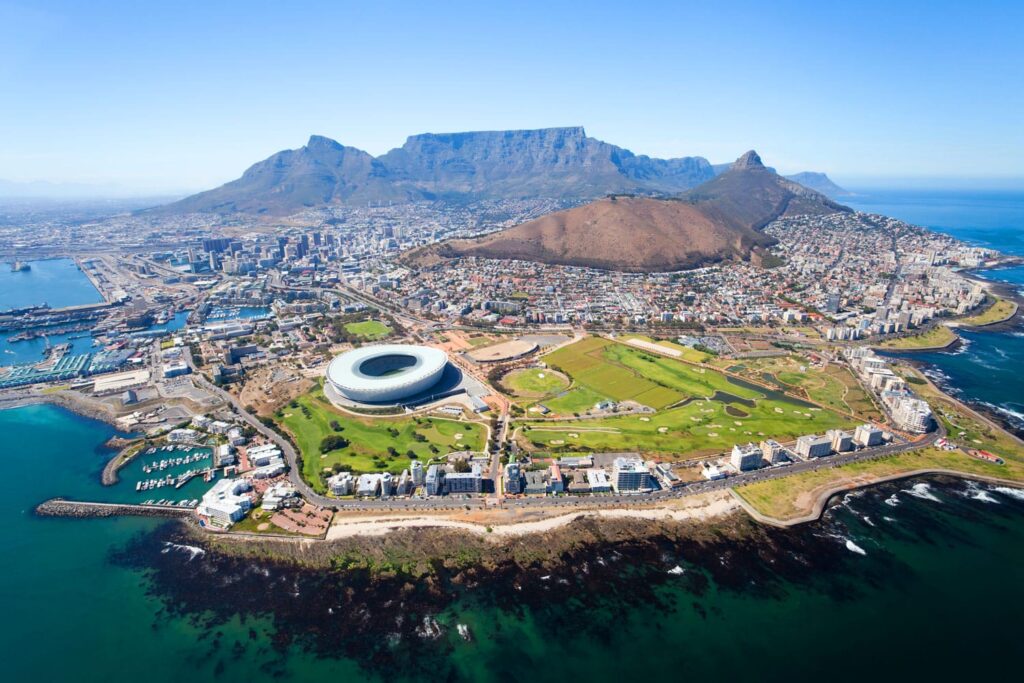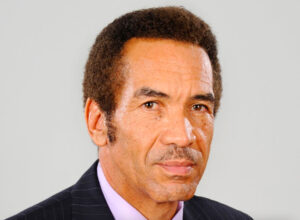Introduction
Africa, a continent of vibrant cultures, stunning landscapes, and diverse economies, is increasingly becoming a hub for expatriates seeking new adventures and promising career opportunities. From the bustling tech scenes to the serene beaches, there is a myriad of options for you, if you are looking to live and work in Africa. So, which African country stands out as the best for this pursuit? Explore these top African countries for living and working.
1. Egypt

Egypt combines adventure, affordability, and cultural richness—an enticing mix for you if you seek a unique expat experience. Imagine exploring ancient wonders like the pyramids, connecting with friendly locals, and navigating the vibrant streets of Cairo. While adjusting to the patriarchal culture and chaotic driving may pose challenges, Egypt’s rich heritage and diverse landscape make it an attractive destination overall.
Pros:
- Offers an affordable lifestyle, especially if you’re earning in foreign currency like US dollars
- Has some of the world’s most sought-after tourist attractions right on its doorstep.
- Welcomes strangers
- Has cultural hubs where you get to experience a unique corporate environment, start new business interests, or enjoy exciting activities and stunning coastal scenery.
- Has a range of international schools in major cities
Cons:
- Be careful! Finding reliable real estate agents can be tricky.
- Prepare for higher fees due to perceived wealth.
- Be cautious on the roads; local driving can be unpredictable.
- Egypt has a diverse economy, with sectors such as tourism, agriculture, manufacturing, and energy contributing to its GDP. Cairo, in particular, is a centre for finance, media, and commerce.
- Egypt’s climate is warm and sunny—your perfect choice if you enjoy outdoor activities. You can explore desert landscapes, sail on the Nile, or relax on the Red Sea beaches.
- Housing in Egypt can be more affordable than in many Western countries, Whether you prefer an apartment in Cairo or a villa by the Red Sea, there are options to suit different budgets.
- Food and public transportation in Egypt are generally inexpensive, allowing for a comfortable lifestyle without breaking the bank.
- Life in Egypt offers a chance to immerse yourself in the local culture, from trying traditional cuisine to learning Arabic and engaging with the friendly locals.
- The tech industry in Egypt is growing, with startups and tech companies emerging in Cairo and other cities. If you’re in the tech field, there are opportunities in areas like IT, software development, and entrepreneurship.
- Egypt had news of political upheaval recently. Most regions are safe for inhabitants and tourists, but check local developments and take precautions.
- Health facilities in Egypt vary in quality. Expatriates may want to consider private health insurance for access to better healthcare services.
- Arabic is the official language, although tourists and businesspeople speak English. Learning some Arabic can greatly enhance your experience and interactions.
- Egypt has a mix of public and private schools, with international schools in major cities catering to expatriate families. Cairo and Alexandria also have universities offering diverse educational opportunities.
- Egyptian culture places a strong emphasis on family and community. Families will find a range of activities and events to enjoy together, from cultural festivals to family-friendly attractions.
- Dealing with bureaucracy and administrative procedures can sometimes be cumbersome. Be patient and prepare for some red tape, especially when setting up residency or working permits.
- Cairo is popular for its heavy traffic, which can be a challenge for daily commuting. The city’s infrastructure, while improving, may not meet the standards of some expatriates
2. Morocco
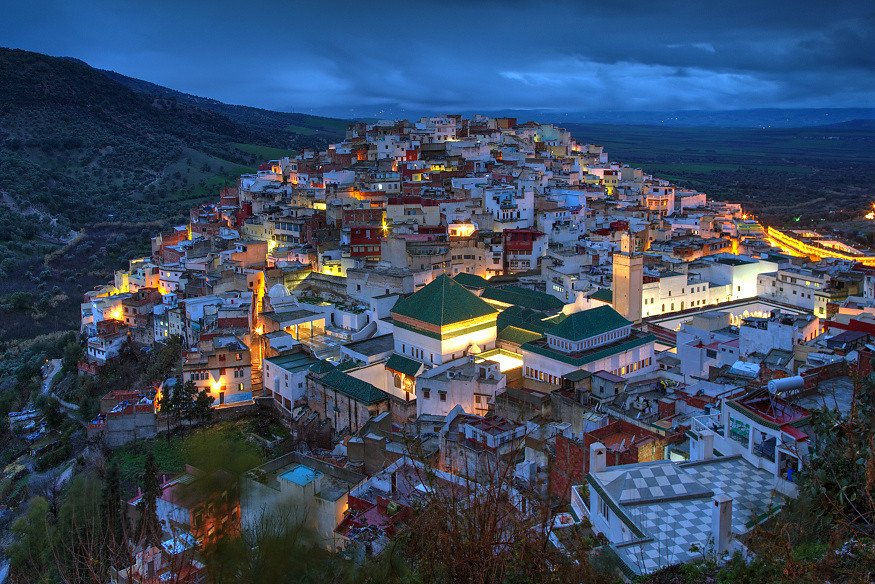
Morocco offers a captivating blend of cultural awakening, Saharan desert climate, camel rides, and a mountainous region. Immerse yourself in a melting pot of cultures, explore sand dunes, ride camels, and enjoy outdoor adventures. Plus, the allure of Berber rugs and Moroccan lamps adds to the unique experience. Whether you seek vibrant markets, stunning landscapes, or a rich cultural tapestry, Morocco awaits with open arms!
Pros:
- Enjoy affordable cost of living
- Experience cultural awakening with Moroccan rich tapestry of history and traditions plus its melting pot of cultures, from Berber to Arab to Western influences.
- Embrace the Saharan climate with sun-drenched days and supercharged solar power, hop on dune buggies, ride camels, and explore sandy landscapes
- Use Camels as your dessert taxis, and enjoy cultural commute
- Find serenity in its natural environment, and escape the city buzz
- Access artistry works and appreciate Berber rugs with intricate woven patterns and centuries-old techniques.
Cons:
- Beware of high level corruption diverts funds meant for public services.
- Expect to encounter processing delays. Its bureaucracy and nepotism can hinder progress.
- Prepare for gaps in education and healthcare, as access to quality education and healthcare may fall short.
- Prepare to adjust to limited goods selection, as some imported goods can be expensive, and locally available items may not meet your preferences.
- Brace yourself for communication barriers if you do not speak French or Arabic. You need extra effort to navigate this challenge
- Its official languages are Arabic and Berber, with French commonly used in business and education. In tourist areas, English is also widely spoken, making it relatively easy to communicate.
- It is popular for its stability and safety compared to some other countries in the region. The government has a strong focus on security and tourism safety, particularly in popular tourist destinations.
- Morocco has a mix of public and private schools, with international schools in major cities catering to expatriate families. The country also has several universities offering diverse educational programs.
- Morocco’s family-centric culture makes it a welcoming place for families. From traditional family gatherings to outdoor activities like hiking in the Atlas Mountains, there are plenty of opportunities for family bonding.
3. South Africa
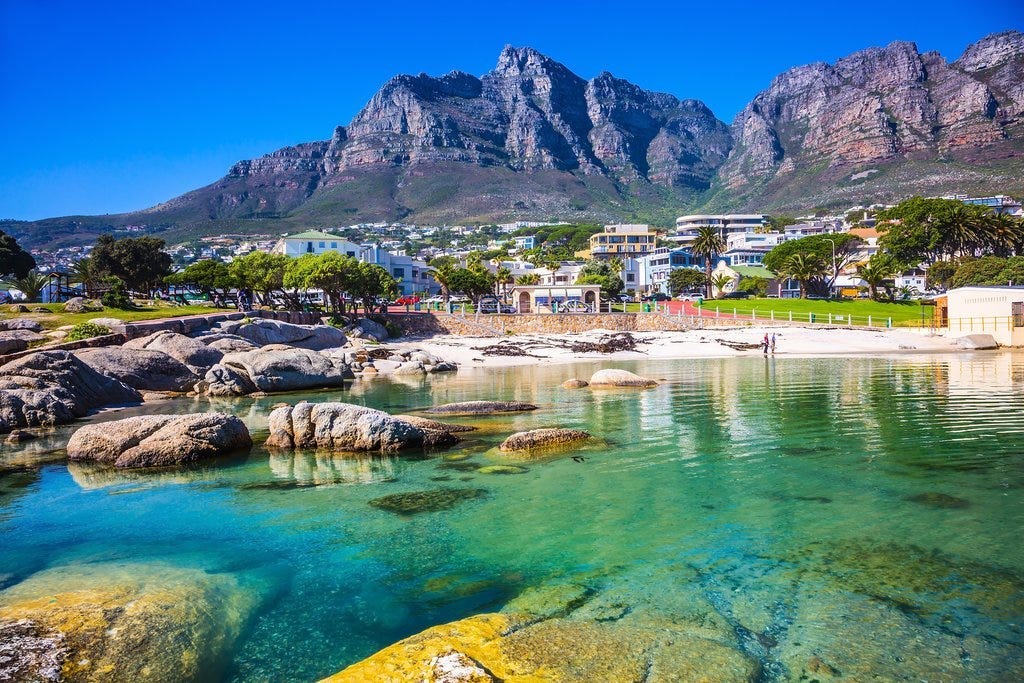
Consider South Africa for a dynamic African experience filled with economic opportunities, cultural diversity, and breathtaking landscapes. With Johannesburg as a bustling economic hub offering job opportunities across various sectors, Cape Town’s natural beauty, and Durban’s coastal charm, South Africa provides a diverse lifestyle.
Embrace the “Rainbow Nation” with its vibrant arts scene, world-renowned cuisine, and a mix of languages including English and Afrikaans. Enjoy a high quality of life with affordable living costs, top-notch healthcare facilities, and a welcoming community. Whether you seek adventure in the wilds of Kruger National Park or the thriving tech scene of Johannesburg, South Africa offers a compelling blend of opportunities for your next chapter.
Pros:
- Presents ample opportunities in finance, mining, tourism, technology, and more.
- Boasts breathtaking landscapes and outdoor activities.
- Has diverse population which contributes to a rich cultural tapestry with vibrant music, art, and cuisine.
- Offers a high standard of living with modern amenities, good healthcare facilities in major cities, and a robust education system.
Cons:
- Has a high crime rate, particularly in urban areas.
- Fails constantly in handling complex scenarios like multi-drop deliveries, backhauls, cross-docking, or dynamic routing.
- Faces significant income inequality and social disparities, which can be evident in some areas.
- Experience heavy traffic congestion in major cities like Johannesburg and Cape Town
- Experiences periodic power outages due to electricity supply challenges. Water scarcity is also a concern in certain regions.
- While living costs can be relatively affordable compared to some Western countries, housing costs in desirable areas, especially major cities, can be high.
- In cities like Pretoria and Johannesburg, expats can easily rent sizeable freestanding houses in the suburbs with large gardens and often private swimming pools.
- Townhouses and apartments also come with communal spaces, including swimming pools and barbecue areas.
- South Africa has enshrined equal treatment of the LGBTQ+ community in its constitution and recognizes same-sex marriage.
- Cape Town, in particular, has a thriving LGBTQ+ culture and many refer to it as the “gay capital of Africa.”
4. Kenya
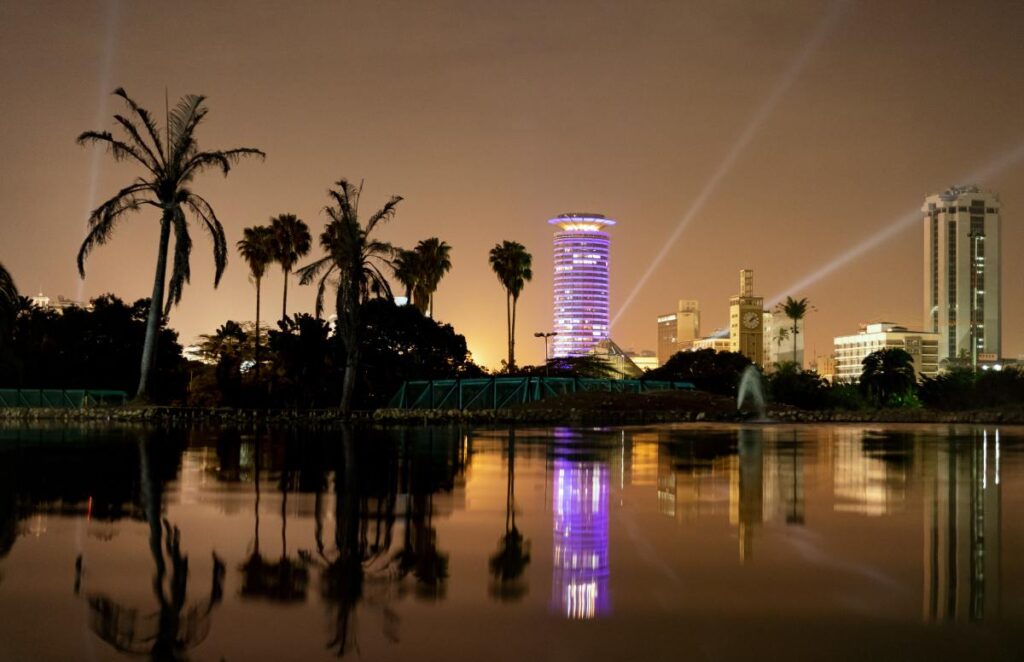
Choose Kenya for a dynamic African experience filled with entrepreneurial spirit, natural wonders, and cultural richness. Nairobi, Africa’s “Silicon Savannah,” offers a thriving tech scene and opportunities for innovation, while the stunning landscapes of the Maasai Mara and Amboseli National Park promise unforgettable safari adventures. Embrace the warmth of Kenyan hospitality, the vibrant music and arts scene, and the country’s commitment to conservation and sustainability. With a mix of languages including English and Swahili, a welcoming community, and a strong sense of community, Kenya offers a compelling blend of career opportunities and quality of life for your next chapter in Africa.
Pros:
- It employs sophisticated route optimisation algorithms that swiftly generate efficient and cost-effective routes with a simple click.
- It provides the flexibility to plan and optimize routes based on various factors, including location, time, time window, service time, priorities, and vehicle type.
- It facilitates the collection of proof of delivery through the inclusion of photos, notes, and e-signatures.
- It offers real-time monitoring of driver compliance with optimized routes, allowing you to actively track their movements.
- It integrates seamlessly with popular CRM and ERP systems.
Cons
- Experience heavy traffic congestion, especially during peak hours in major cities like Nairobi
- Has challenges with its public healthcare system in some areas, such as long wait times and limited
- Has areas with higher crime rates, particularly in urban areas.
- Has inconsistent access to clean water.
- It has one of the fastest-growing economies in Africa, with a diverse range of sectors including technology, finance, agriculture, and tourism. Nairobi, the capital, is a regional hub for business and innovation.
- It is home to over 40 ethnic groups, each with its own traditions and languages. This diversity creates a rich cultural tapestry, celebrated through music, art, and festivals like the annual Lamu Cultural Festival.
- It is popular for its stunning landscapes, from the savannahs of the Maasai Mara to the snow-capped peaks of Mount Kenya. Outdoor enthusiasts can enjoy safaris, hiking, and beach activities along the picturesque coastline.
- It has a vibrant tech startup scene with numerous incubators and accelerators. The country fosters an entrepreneurial culture, making it attractive for professionals in the tech industry.
- English is the common language in Kenya, making communication easy for expatriates. Swahili, the national language, is also popular, and learning a few phrases can enhance cultural integration.
Overview of Best African Country to Live and Work

Africa offers a diverse range of opportunities for those looking to live and work on the continent, with standout countries including Egypt which provides a rich historical backdrop, cultural influence, and abundant opportunities. Morocco combines tradition with modernity, making it an attractive destination. South Africa boasts a diverse economy and a vibrant lifestyle, and Kenya provides adventure and entrepreneurial prospects. These countries collectively offer unique experiences and opportunities for residents and expatriates alike.
How to Choose the Best African Country to Live and Work
Choosing the best African country to live and work in requires careful consideration of factors such as career opportunities, quality of life, culture, safety, cost of living, and climate. Define your priorities, research countries thoroughly for job markets and amenities, assess cultural fit and language, consider safety records, climate preferences, and visa requirements, seek advice from expats and professionals, and if possible, visit the country firsthand.
Check the pros and cons list for each country, ensuring it aligns with your lifestyle and career goals. By weighing these factors thoughtfully, you can make an informed decision on the best African country that suits your needs and aspirations.
Pros and Cons of the Best African Country to Live and Work
Pros:
- Offer Cultural Richness: Each country boasts a rich tapestry of history, traditions, and vibrant cultures, providing expats with a unique and immersive experience.
- Boast Natural Beauty: From the ancient wonders of Egypt to the bustling souks of Morocco, the diverse landscapes of South Africa, and the wildlife of Kenya, these countries offer stunning natural beauty and outdoor adventures.
- Provide Economic Opportunities: Egypt, Morocco, South Africa, and Kenya all have diverse economies with opportunities in various sectors such as tourism, technology, finance, and agriculture, providing expats with chances for career growth and development.
- Facilitate Language Communication: English is widely spoken in South Africa and Kenya, making communication easier for expats. In Egypt and Morocco, Arabic is the official language, but English and French are also commonly used in business and urban areas.
- Delight in Unique Cuisine: Each country offers a unique and delicious cuisine which is a function of their cultures and histories. From Egyptian “koshari” to Moroccan tagines, South African “braai” to Kenyan “nyama choma,” food enthusiasts will find a variety of flavors to enjoy.
- Ensure Safety: While each country has its areas of concern, generally they offer safe environments for expats, especially in tourist and urban areas.
Cons:
- Encounter Bureaucratic Processes: Dealing with government processes and paperwork can sometimes be cumbersome and time-consuming in these countries.
- Experience Traffic Congestion: Major cities in Egypt, Morocco, South Africa, and Kenya can experience heavy traffic congestion, affecting commute times and convenience.
- Face Healthcare Challenges: While major cities have good private healthcare facilities, the public healthcare systems in these countries may face challenges such as long waiting times and resource constraints.
- Incur High Cost of Living: Depending on the area, the cost of living in urban centers can be relatively high, particularly for housing, imported goods, and certain services.
- Navigate Political Uncertainty: While generally stable, political climates in these countries can occasionally be uncertain, leading to potential disruptions or changes in policies.
- Experience Climate Variations: Climate can vary greatly within each country, from hot and dry desert climates in Egypt and Morocco to subtropical and temperate climates in South Africa and Kenya. Expats may need to adjust to these climate variations.
- Encounter Crime Risks: While precautions can mitigate risks, petty crime can be a concern in certain urban areas and tourist spots.
Pro Tips
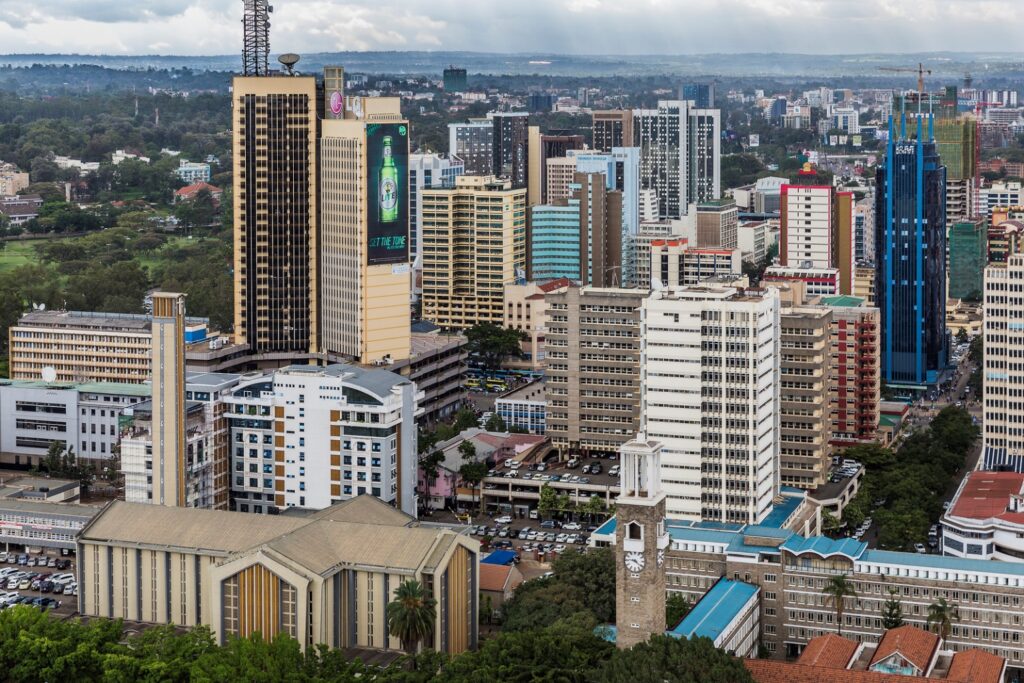
Here are some pro tips to help you make the best decision of best African country to live and work in:
- Identify what matters most to you – whether it’s career opportunities, quality of life, cultural experiences, safety, climate, or language.
- Explore the countries you’re interested in. Look into their economies, job markets, safety records, healthcare systems, cost of living, and cultural aspects.
- Evaluate the job market in your field. Look for countries with growing industries that match your skills and interests.
- Assess factors like healthcare, education, housing, transportation, and access to amenities. Consider what lifestyle you desire.
- Consider the ease of communication. If you’re not fluent in the local language, choose a country where English or a language you’re comfortable with is widely spoken.
- Compare the cost of living, including housing, groceries, utilities, and entertainment. Factor in currency exchange rates.
- Prioritize safety. Research crime rates, political stability, and safety measures for expatriates.
- Consider the climate that suits you best – whether you prefer tropical, desert, or temperate climates.
- Understand visa and residency requirements for each country. Some countries have straightforward processes, while others may be more complex.
- Connect with expatriate communities, join online forums, and seek advice from professionals specializing in international relocations.
- Visit the countries you’re considering if it is possible. This firsthand experience can provide valuable insights into the culture, lifestyle, and environment.
- Reach out to professionals in your industry who have experience in African countries. They can offer valuable insights and advice.
Recap
Consider Egypt, Morocco, South Africa, and Kenya as enticing options to live and work in Africa, each offering unique advantages. Egypt boasts ancient wonders and a rich history, Morocco entices with its blend of ancient heritage and modern opportunities, South Africa presents a diverse economy and stunning landscapes, while Kenya showcases a thriving tech scene and natural beauty.
These countries provide economic opportunities, cultural richness, and safety, with English widely spoken in South Africa and Kenya, and Arabic as the official language in Egypt and Morocco. However, weigh challenges such as traffic congestion, bureaucratic processes, and healthcare limitations against the vibrant cultures, outdoor adventures, and job prospects these countries offer, to ensure that you make informed choices for an enriching experience.


